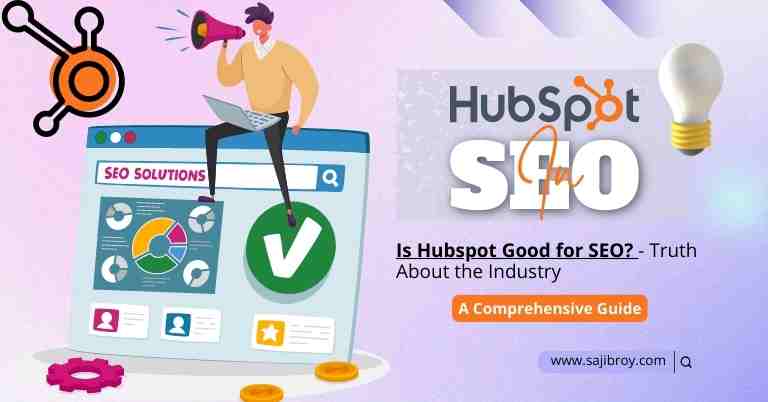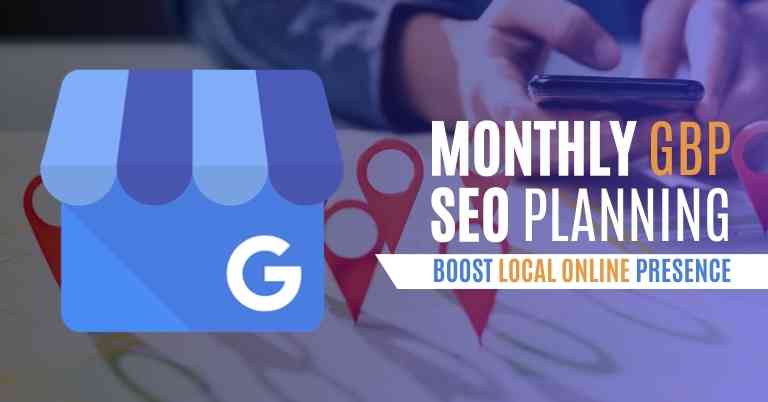There is no one-size-fits-all answer to this question, as the effectiveness of HubSpot for SEO depends on a number of factors, including the specific industry and keywords targeted. However, in general, HubSpot can be a valuable tool for SEO efforts, providing users with access to keyword research and analysis tools, content optimization features, and more. Additionally, because HubSpot is an all-in-one marketing platform, it can help streamline SEO efforts by integrating seamlessly with other marketing activities.
Let's See the Topic Overview
How Does Hubspot SEO Work?
In order to really answer this question, we need to back up and understand a little bit about how HubSpot works in general. HubSpot is a software platform that helps businesses with inbound marketing and sales. In other words, it’s designed to attract strangers to your website and then turn them into leads and customers.
- Google SEO Trends 2023: #8 Factors that Dominate SEO Industry
- What Industries Need SEO the Most? Really!
- Is It Worth Hiring an SEO Expert in 2023?
- 20 Hacking Way: How to Make Money with SEO in 2023?
- Which is Better? – Pay for SEO or Do it Yourself?
- SEO for Non-WordPress Site
- How Much Do SEO Freelancers Make?
- How Many Meta Keywords Should I Use for SEO?
One of the main ways it does this is through search engine optimization (SEO). When you optimize your website for search engines, you’re making it easier for people to find when they’re searching for terms related to your business. For example, if you sell hand-crafted wooden bowls, you want to show up when someone searches for “wooden bowls” or “handcrafted bowls.”
HubSpot makes optimizing your website for search engines easy by giving you tools to do keyword research, track your progress over time, and make changes to improve your ranking. And because HubSpot is integrated with Google Analytics, you can see how well your SEO efforts are paying off. The bottom line is that HubSpot’s SEO features make it easier for you to get found online, which can lead to more traffic and more customers for your business.
Is Hubspot Good for SEO?
The answer to this question is likely yes. Hubspot is a world-renowned digital marketing company that has been helping small businesses and business owners succeed in the online space for years. Despite this, there are some concerns that could be raised about their effectiveness for SEO purposes.
One potential concern is their reliance on paid search engine optimization (P Sao), which may not always be effective for smaller businesses or those who do not have the resources to invest in P Sao. Additionally, HubSpot does not offer a wide range of features that might be useful for SEO such as link building or social media management.
Is SEO Still Relevant in 2023?
It’s no secret that SEO has been on a bit of a roller coaster ride over the past few years. As Google continues to evolve and update its algorithms, what worked last year may not work this year. So, is SEO still relevant in 2023?
The answer is a resounding yes! Here’s why:
- People are still searching online for information. In fact, search is now the #1 activity on the internet. More people are searching than ever before and they’re using more sophisticated search terms (long-tail keywords) to find what they’re looking for.
- Google isn’t going anywhere. It’s still the most popular search engine by far and it continues to dominate the market share. While other search engines may come and go, Google is here to stay.
- SEO evolves with Google. As Google changes its algorithms, so does SEO. What may have worked last year might not work this year, but that doesn’t mean that SEO isn’t relevant or important anymore – it just means that you need to keep up with the latest trends and changes in order to be successful.
- There’s more competition than ever before but there are also more opportunities than ever before too! With more businesses competing for attention online, it’s even more important to stand out from the crowd and optimize your website for both users and search engines if you want to be successful in 2022 (and beyond).
Why is SEO Important?
Search Engine Optimization (SEO) is the practice of improving the ranking and visibility of a website or web page in search engine results pages (SERPs). SEO can be used to improve the visibility of a website or web page in organic (unpaid) search engine results. The main aim of SEO is to drive more traffic to a site, ideally resulting in increased revenue.
However, SEO can also be used for other purposes such as increasing brand awareness or building relationships with potential customers. SEO is important because it can help a website or web page rank higher in SERPs, which can result in more traffic and potentially more revenue. Additionally, SEO can be used for other purposes such as building relationships with potential customers or increasing brand awareness.
Hubspot SEO
If you’re serious about inbound marketing, then you need to be using HubSpot. Not only does it have all the tools you need to run a successful inbound marketing campaign, but it also offers a number of features that can help improve your SEO. One of the most important things to consider when optimizing your website for search engines is your site’s structure.
HubSpot’s platform is designed with this in mind, making it easy to create a well-organized website that search engines will love. Another important element of SEO is keyword research. HubSpot makes this easy with its Keyword Research tool, which allows you to see which keywords are being used to find your site and how much competition there is for each one.
Armed with this information, you can adjust your content strategy to focus on the keywords that are most likely to bring new visitors to your site. Finally, no discussion of SEO would be complete without mentioning backlinks. Backlinks are links from other websites pointing back to yours, and they’re an important part of any successful SEO strategy.
Luckily, HubSpot’s tools make it easy to track who’s linking to your site and what kind of link they’re providing. This way, you can proactively reach out to high-quality sites and request links from them, further improving your backlink profile and boosting your SEO efforts.
SEO Recommendations HubSpot
- Do your research. Keyword research is essential for on-page optimization.
Chances are you are naturally including keywords without realizing it simply by providing valuable content on a topic. However, there are a variety of tools and techniques for finding related keywords relevant to your blog post that you may not have considered. The Google Adwords Keyword Tool and semrush.com both offer great tools that allow you to find keywords related to your topic and even spy on your competition to see what words and phrases they are targeting to bring traffic to their sites.
- Utilize keywords throughout your post. Once you have targeted a couple of valuable, relevant keywords, it is important to place them where they will have the most impact on humans and search engine crawlers indexing your content. Try to include them in the following places:
- Title
- Headings and subheadings
- Introductory sentence
- Concluding paragraph
- Anchor text (text you hyperlink to other related pages on your site)
- Title tags and meta descriptions
A word of caution: Don’t engage in keyword stuffing, which is the act of filling your content with so many keywords that it becomes difficult to read. Not only will this irritate your blog followers, it will also get you penalized by Google. A couple of strategically placed keywords will do the trick.
Hubspot SEO Certification
If you’re looking to brush up on your SEO knowledge or earn a certification to show off your skills, HubSpot’s SEO Certification is a great option. The exam consists of 60 multiple-choice questions covering a wide range of topics, from keyword research and on-page optimization to link building and technical SEO. And while the test is certainly challenging, we’ve got you covered with this complete guide to HubSpot’s SEO Certification exam.
In it, we’ll walk you through everything you need to know about the exam, including what’s covered, how it’s structured, and our top tips for passing with flying colors. We’ll also share the full list of questions and answers from our own experience taking the test so that you can study up and be as prepared as possible come exam day. Ready to get started?
Let’s dive in!
SEO is one of the most important aspects of digital marketing, and HubSpot’s SEO Certification is designed to help you master the basics. This certification will teach you how to optimize your website for search engines, drive traffic from organic search, and track and measure your results.
The course is divided into six modules:
- Module 1: SEO Basics
- Module 2: On-Page and Technical SEO
- Module 3: Keyword Research for SEO
- Module 4: Link Building for SEO: Scaling Your Backlink Strategy
- Module 5: Optimizing Your Website for Rich Results
- Module 6: SEO Reporting
Hubspot SEO Course
As someone who’s looking to improve their website’s search engine optimization (SEO), you may be wondering if taking a course on the topic is worth your time and money. HubSpot offers an online SEO course that promises to teach you everything you need to know about getting your site to rank higher in search results. But is it really worth the investment?
Here’s a look at what the course covers and what past students have had to say about it. What You’ll Learn in the HubSpot SEO Course The HubSpot SEO course is designed for beginners and intermediate users alike.
It starts with the basics of how search engines work and moves on to more advanced topics, such as keyword research, link building, and tracking your progress. The course also includes helpful resources, such as templates and checklists, that you can use to improve your own website’s SEO. Past students have praised the comprehensive nature of the course material.
One user called it “an amazing starting point for anyone new to SEO,” while another said it was “a great refresher” even for those with some experience in the field.
Hubspot SEO Blog
HubSpot’s blog is a great resource for anyone looking to improve their SEO. The blog covers a wide range of topics, from technical tips and tricks to content marketing best practices. Whether you’re a beginner or an expert, you’ll find something useful on HubSpot’s blog.
Hubspot SEO Knowledge Base
If you’re looking to improve your website’s SEO, HubSpot’s Knowledge Base is a great resource. Here, you’ll find articles on topics like optimizing your website for search engines, using keywords effectively, and improving your click-through rate. You can also learn about the latest changes to Google’s algorithm and how they may affect your website.
With this knowledge base at your disposal, you’ll be well on your way to improving your site’s SEO and getting more traffic from organic searches.
Hubspot Marketing Automation
In the world of inbound marketing, HubSpot is a name that comes up time and time again. And for good reason! As a comprehensive inbound marketing and sales platform, HubSpot offers users everything they need to attract visitors, convert leads, and close customers.
But what about automating your marketing tasks? Is HubSpot the right tool for the job? As it turns out, HubSpot’s Marketing Automation features are some of the best in the business.
Here’s everything you need to know about using HubSpot for marketing automation. What is Marketing Automation? Marketing automation is the process of using software to automate marketing tasks.
This can include anything from sending emails to managing social media posts to tracking website activity. The goal of marketing automation is to make your marketing efforts more efficient so that you can free up time to focus on other aspects of your business. Why Use HubSpot for Marketing Automation?
There are a number of reasons why you might want to consider using HubSpot for your marketing automation needs. First and foremost, HubSpot is an all-in-one platform that includes everything you need for inbound marketing and sales (including CRM features). This means that you won’t need to worry about integrating multiple software products – it can all be done within HubSpot.
In addition, HubSpot has some of the most robust email automation features on the market. And last but not least, their customer support is top-notch – something that’s important when you’re relying on software to automate critical tasks like email campaigns.
Conclusion
If you’re looking for an all-in-one marketing platform, HubSpot might be a good fit for your business. It offers a wide range of features, including SEO tools. While HubSpot’s SEO capabilities are robust, they may not be the best fit for everyone.
If you’re primarily focused on SEO, you might want to consider a dedicated SEO platform instead.
Keep Learning With Sajib Roy













One thing I appreciate about this post is that it’s not overly promotional. While the author clearly thinks highly of Hubspot, they also acknowledge that there are other SEO tools and strategies that may work better for certain businesses. This level-headed approach is refreshing and makes the post feel trustworthy.
Overall, I would highly recommend this post to anyone who is considering using Hubspot as part of their SEO strategy. It’s a great resource for understanding the benefits and limitations of this tool, and it provides actionable advice for making the most of Hubspot’s features.
After reading this post, I feel much more confident in using Hubspot as part of my SEO strategy. The author does a great job of explaining the different features that Hubspot offers. Additionally, the post provides real-world examples of how Hubspot has helped other businesses improve their SEO efforts.
I’m always excited to see what you post on your blog because each time is a new adventure! I love reading through all of them, and it’s such an honor when someone leaves me their own thoughts in the comments section. Keep up the good work!